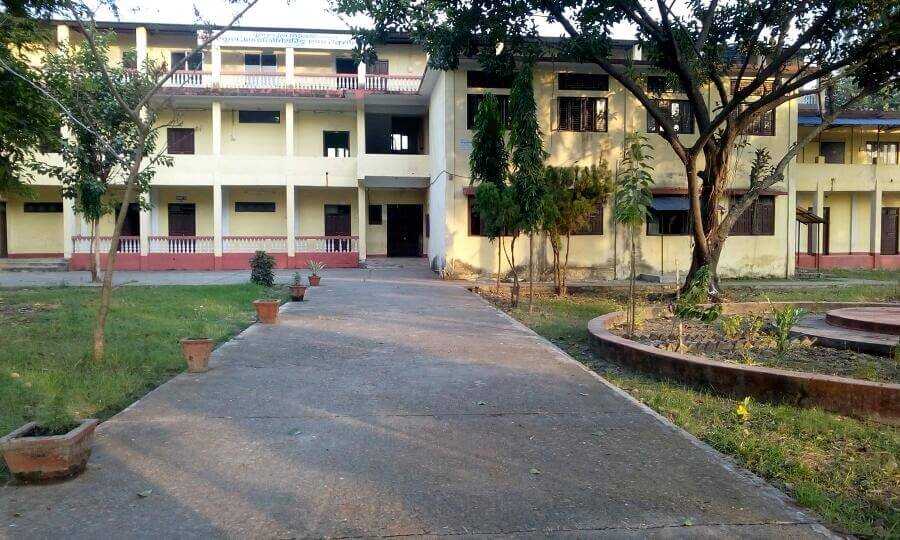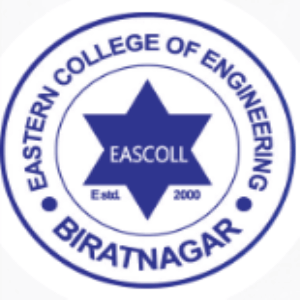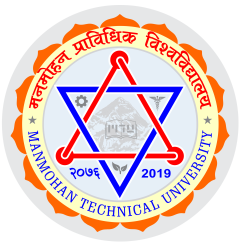Overview
Bachelor of Engineering in Electronics Communication & Automation Engineering at PUSOE
The Bachelor of Engineering (BE) program in Electronics Communication & Automation Engineering at Purbanchal University School of Engineering (PUSOE), Biratnagar, Nepal, is an undergraduate course that combines the principles of electronics, communication, and automation.
Affiliated with Purbanchal University (PU), this program is designed to provide students with a thorough understanding of hardware and software aspects of electronic and communication systems and also focuses on automation technologies.
This course is tailored to meet the requirements of growing industries that require engineers with knowledge of electronics, communication, and automation.

Curriculum Details
The BE in Electronics Communication & Automation Engineering curriculum is organized to give a solid understanding of electronics, communication, and automation. It includes specialized courses and elective options. The curriculum combines core courses with practical sessions and project work and is designed to give a well-rounded educational experience.
Core Courses
These courses form the base of the program, covering essential areas of electronics, communication, and automation engineering:
-
Circuit Theory and Analysis: The course covers the concepts of electrical circuits, both DC and AC, and various analysis techniques.
-
Electronic Devices and Circuits: This covers the operation and applications of semiconductor devices and basic electronic circuits.
-
Digital Logic Design: The course focuses on the fundamentals of digital circuits, including logic gates and combinational and sequential circuits.
-
Signals and Systems: This includes analyzing different types of signals and systems and their applications in communication systems.
-
Communication Systems: Students learn about the principles and methods of analog and digital communication systems.
-
Control Systems: This course covers the analysis, design, and implementation of control systems, including feedback and digital control.
-
Automation Engineering: Covers the basics of industrial automation, including robotics and programmable logic controllers.
Specializations and Elective Courses
Students can choose from specialized courses and electives that let them focus on particular areas within electronics communication and automation. Some of these electives include:
-
Wireless Communication: This includes advanced wireless technologies, including mobile communication, wireless networking, and antenna design.
-
Embedded Systems: The course covers designing, developing, and implementing embedded systems for various applications.
-
Robotics and Automation: This specialization covers the principles of robotics, automation, and industrial control systems.
-
Digital Signal Processing: Students learn different signal processing methods and their applications in communication and control systems.
-
Optical Communication: This focus looks into the principles of optical communication and optical networks.
-
Industrial Automation Systems: The course reviews industrial automation technologies, including programmable logic controllers, industrial networks, and process control.
Objectives
The main objectives of the BE in Electronics Communication & Automation Engineering program are:
-
To give students a strong knowledge of electronics, communication, and automation engineering concepts.
-
To prepare graduates to apply engineering principles and modern tools in solving real-world issues.
-
To improve the ability of students to design, analyze, and build electronic, communication, and automation systems.
-
To encourage students to follow ethical and professional practices.
-
To promote lifelong learning and professional development.
Scope
The program's scope is broad, covering a range of sectors and job roles. Graduates will be qualified for several positions, including:
-
Telecommunication companies in network design, operation, and maintenance.
-
Electronics manufacturing firms in device design and production.
-
Automation companies in industrial control and robotics.
-
Embedded systems firms are involved in product development and testing.
-
Research and development organizations.
-
Consulting firms in electronics, communication, and automation.
-
Government agencies are involved in infrastructure and technology development.
Learning Outcomes
Upon completion of the BE in Electronics Communication & Automation Engineering program, students should be able to:
-
Analyze and design electronic circuits using both analog and digital components.
-
Understand the principles and practices of different communication systems.
-
Apply control system techniques for various applications.
-
Develop embedded systems for different applications.
-
Use automation technologies in industrial control systems.
-
Different test and measurement equipment were used for analysis and design.
-
Use engineering software for design, simulation, and analysis.
Skill Development Modules
The program includes skill development modules that help students improve both technical and soft skills:
-
Circuit Design and Simulation Tools: Training on tools like LTSpice, Multisim, and PSpice.
-
Microcontroller Programming: Skills to program and implement applications using microcontrollers and microprocessors.
-
Communication System Design Tools: Training on communication system design and analysis tools, like MATLAB.
-
PLC programming: Use of programmable logic controllers for industrial automation.
-
Hardware Labs: Hands-on sessions on electronics, communication, and automation equipment.
-
Project Management: Skills for planning and managing engineering projects effectively.
Teaching Methodology
The teaching methods at PUSOE are designed to create an effective learning environment for students:
-
Lectures: Formal instruction by experienced faculty to present key concepts and theories.
-
Tutorials: Regular tutorials for problem-solving and addressing student questions.
-
Lab Sessions: Practical sessions in well-equipped labs with modern equipment.
-
Project Work: Individual and group projects to apply learned knowledge to practical situations.
-
Seminars: These include guest lectures and workshops by industry professionals and experts.
-
Case Studies: Analysis of real-world engineering problems to develop practical solutions.
Faculty Expertise
The faculty members at PUSOE are experts in electronics, communication, and automation. They combine teaching with practical experience, enhancing the learning experience. They are also involved in research activities, ensuring their teaching is current.
The faculty consists of professors and assistant professors with advanced degrees from well-known universities. They ensure that students receive qualified instruction and are dedicated to their success. The faculty also provides individualized support when necessary.
Admission Requirements
To be eligible for admission to the BE in Electronics Communication & Automation Engineering program at PUSOE, applicants must:
-
Have completed 10+2 in the Science stream or its equivalent, with Mathematics, Physics, Chemistry, and English as main subjects.
-
I have completed the qualifying examination with a minimum aggregate of 45%.
-
Meet any other requirements specified by Purbanchal University and PUSOE.
Career Opportunities
Graduates of the BE in Electronics Communication & Automation Engineering program can seek several positions in the industry. Their skills and knowledge make them qualified for different roles within the sector. Some of the possible job roles include:
-
Electronics Engineer
-
Communication Engineer
-
Automation Engineer
-
Embedded Systems Engineer
-
Control Systems Engineer
-
Network Engineer
-
Robotics Engineer
-
Project Manager
-
Research and Development Engineer
Student Life and Extracurricular Activities
Student life at PUSOE is designed to give students a well-rounded education. The college encourages participation in various ECAs to promote personal and professional growth.
Students have several activities available, including sports, cultural events, and technical clubs. These activities foster community and teamwork and help students improve their talents.
Scholarships and Financial Aid
PUSOE offers a range of scholarships and financial assistance programs for eligible students. These programs are intended to ensure that higher education is available to students from various backgrounds.
Details regarding eligibility criteria and application processes are available on the university website. These options can support students financially, reducing the financial burden of higher education.
Why Choose This Course?
The BE in Electronics Communication & Automation Engineering program at PUSOE offers a well-rounded and comprehensive educational experience. The program combines a strong knowledge base with practical skills and is designed to prepare students for the needs of different modern industries.
The college has links with several sectors, which can offer students opportunities for internships and jobs. Those interested in a career in electronics, communication, and automation will find this program beneficial.
Why Choose This College?
PUSOE offers a conducive learning environment with modern facilities and a faculty committed to student success. Students have access to various resources that help them succeed in their fields.
The college is focused on innovation, research, and high-quality education, making it an excellent choice for higher education. PUSOE is also known for producing well-trained and qualified professionals who are leaders in their fields.
Conclusion
The BE in Electronics Communication & Automation Engineering program at PUSOE is an excellent option for students pursuing electronics, communication, and automation careers. The program is designed to meet industry needs and prepares students with the knowledge and practical skills necessary for job roles. By focusing on the quality of teaching, practical experience, and a strong ethical framework, PUSOE ensures that its graduates are well-equipped to contribute positively to the engineering world.
















